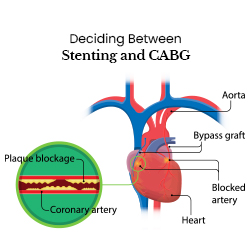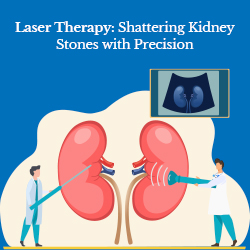Imagine spending a calm evening in a park when someone nearby collapses and begins to shake violently. People in the area panic, not knowing what to do. A sudden spike in electrical activity in the brain is what occurs during a seizure. Although it may seem frightening, knowing that epilepsy is the condition that causes these seizures can have a significant impact. We’ll simplify epilepsy in this blog post so you can learn about its causes, symptoms, treatments, and when to get medical attention.
What Causes Epilepsy?
There are a number of causes for epilepsy, and occasionally medical professionals are unable to identify the exact cause. Nonetheless, the following are some typical causes of epilepsy:
- Genetics: You may be more susceptible to epilepsy if someone in your family has it. A person may be more susceptible to seizures due to specific genes.
- Head Injuries: Epilepsy can result from brain damage caused by a serious accident or head trauma. This is the reason it’s so crucial to wear a helmet when riding a bike.
- Brain Conditions: By impairing brain function, stroke, tumors, or infections like meningitis can cause epilepsy.
- Developmental Disorders: Epilepsy may occasionally be associated with conditions such as autism or neurodevelopmental disorders.
- Prenatal Injuries: When a baby’s brain fails to develop normally during pregnancy because of insufficient oxygen
How Do You Identify Epilepsy?
Contrary to popular belief, seizures do not always involve violent convulsions. Depending on the type of epilepsy, seizures can take many different forms.
Here are a few typical indicators:
- Uncontrollable Jerking Movements: The majority of people identify uncontrollable jerking movements—violent body shaking—as seizures.
- Blank Staring Spells: The individual doesn’t answer and seems to be “zoned out” for a short while.
- Abrupt Loss of Awareness: They may abruptly stop their activities, drop objects, or even fall.
- Unusual Feelings: Just before a seizure, some people get a tingling sensation, an unexpected odd smell, or a déjà vu feeling.
- Temporary Confusion: For a few minutes following a seizure, they might feel lost or find it difficult to speak.
If you or someone you know is experiencing any of these symptoms, it’s best to consult a doctor for further evaluation.
Diagnosis and Tests
How Is Epilepsy Diagnosed?
Diagnosing epilepsy isn’t as simple as taking a blood test. Since seizures can be caused by different conditions, doctors perform a series of tests to confirm epilepsy.
What Tests Are Done to Diagnose Epilepsy?
- Electroencephalogram (EEG): This test records the brain’s electrical activity using small sensors attached to the head.
- MRI or CT Scan: These imaging tests help doctors see if there are any abnormalities in the brain, such as tumors or scars.
- Blood Tests: Although they don’t diagnose epilepsy directly, they help rule out infections or genetic disorders that might be causing seizures.
- Video Monitoring: In some cases, patients are observed in a hospital setting while being recorded to analyze their seizures.
How Is Epilepsy Treated?
The severity of epilepsy and the frequency of seizures determine the course of treatment.
- Medications: Anti-epileptic medications (AEDs) are typically the first line of treatment. These aid in seizure control, but it may take some time to find the appropriate drug and dosage.
- Surgery: If drugs are ineffective, doctors may recommend surgery to remove the seizure-causing brain region.
- Vagus Nerve Stimulation (VNS): By placing a tiny gadget beneath the skin, Vagus Nerve Stimulation (VNS) reduces seizures by sending electrical signals to the brain.
- Ketogenic Diet: The ketogenic diet is a unique low-carb, high-fat diet that has helped some people, particularly kids, manage their seizures.
- Lifestyle Modifications: Reducing the frequency of seizures can be achieved by avoiding triggers such as stress, lack of sleep, and flashing lights.
When Should You See a Doctor?
If you experience any unexplained blackouts, memory gaps, or repetitive, unusual movements, it’s important to see a doctor. Even if it’s not epilepsy, getting checked can help rule out other conditions.
When Should You Go to the Emergency Room?
Some seizures require immediate medical attention. You should call an ambulance if:
- A seizure lasts more than 5 minutes.
- The person has multiple seizures in a row without regaining consciousness.
- They get injured during a seizure.
- It’s their first seizure ever.
What Are the Complications of Epilepsy?
Numerous aspects of life can be impacted by epilepsy, such as:
- Risks of Injury: Accidents during a seizure, falls, or burns can result in injuries.
- Memory and Learning Problems: Some epileptics have trouble focusing and remembering things.
- Emotional and Mental Health Problems: Because seizures are unpredictable, people with epilepsy frequently experience anxiety and depression.
- Sudden Unexpected Death in Epilepsy (SUDEP): Even though it is uncommon, some individuals with epilepsy pass away unexpectedly, possibly as a result of breathing problems during seizures or irregular heartbeats.
How Can Epilepsy Be Prevented?
While some cases of epilepsy can’t be prevented, there are ways to reduce the risk:
- Wear helmets and safety gear to prevent head injuries.
- Get vaccinated to protect against brain infections.
- Manage stress with exercise, meditation, or therapy.
- Get enough sleep because lack of sleep can trigger seizures.
- Take medications as prescribed if you have a condition that increases your risk of seizures.
Why Do Patients Trust Trilife Hospital for Epilepsy Care?
Not every hospital offers the same degree of experience in treating epilepsy. Modern technology, a patient-centered approach, and skilled neurologists provide comfort to patients at Trilife Hospital. Trilife Hospital guarantees that each patient receives the best care possible, tailored to their individual needs, from precise diagnosis to cutting-edge treatment options.
Conclusion
Although epilepsy may seem overwhelming, it is manageable with the correct information and assistance. Early intervention makes all the difference, whether it is in diagnosing a condition, understanding symptoms, or investigating treatment options. Do not hesitate to contact a healthcare provider if you or a loved one is having seizures. After all, the first step to improved health and mental tranquility is awareness.



